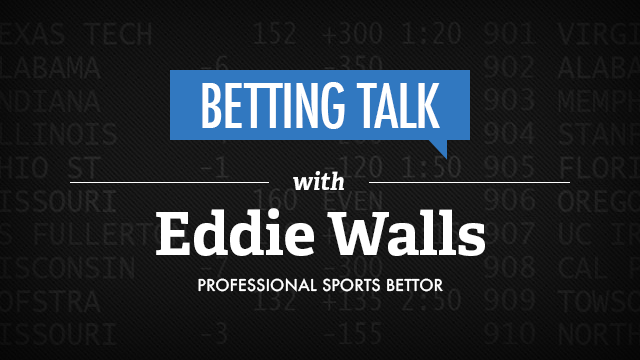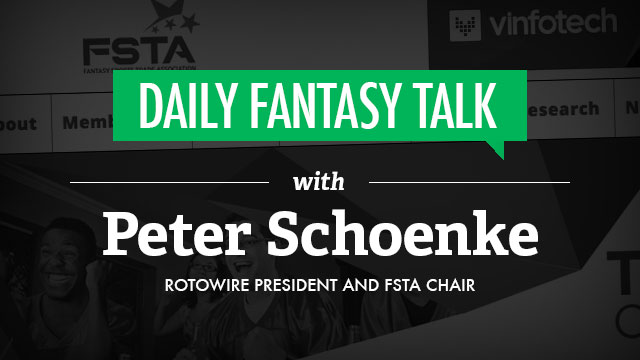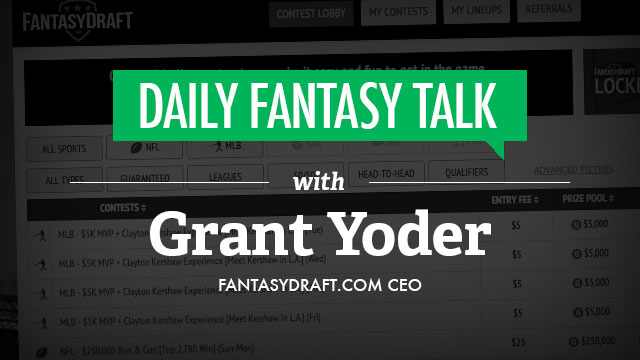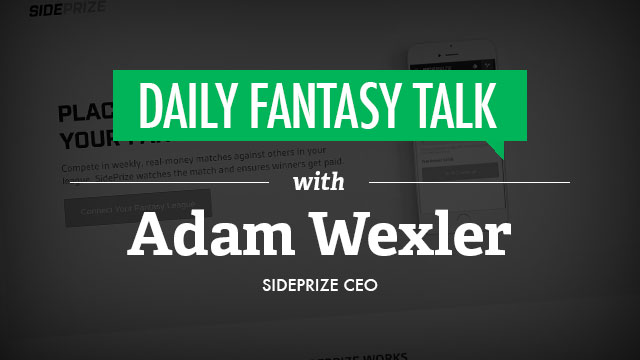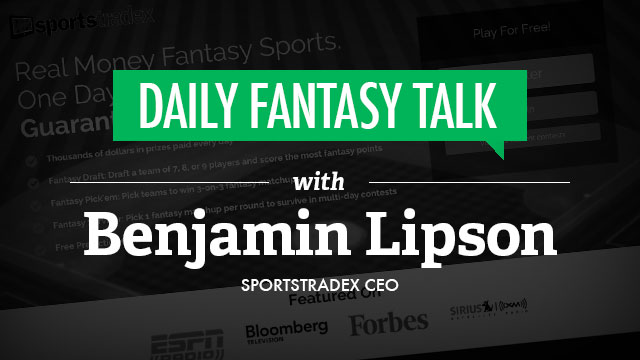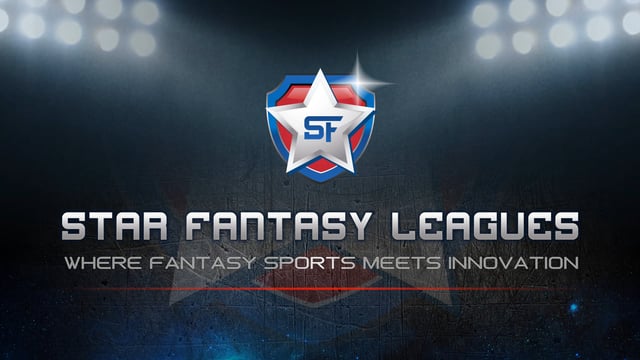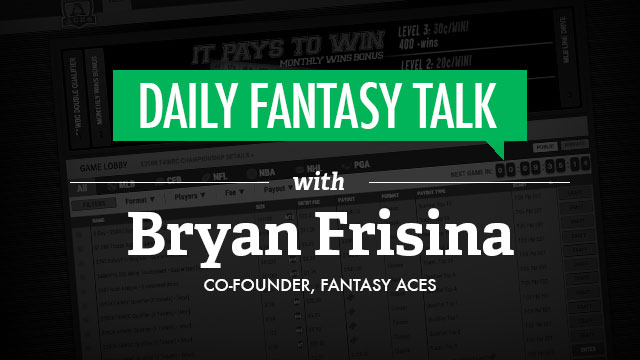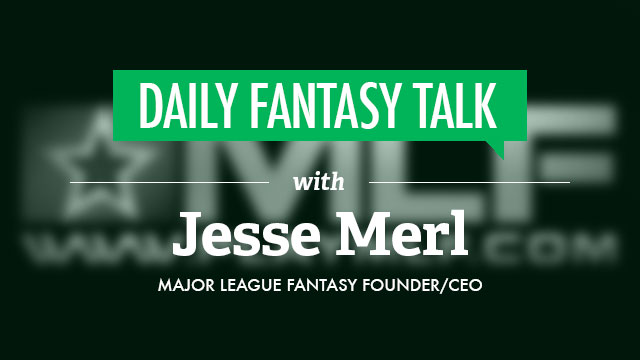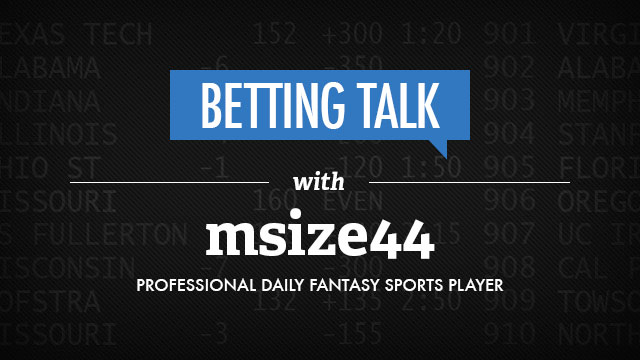Professional bettor Eddie Walls joined the Betting Talk Slack’s college football channel to discuss this weekend’s college football card. He took requests on more than 20 games and offered his thoughts on each. You can follow him on Twitter at @walls_edward. You can also sign up to join the Betting Talk Slack community using the sign-up form on our home page!
***
305 MIDDLE TENNESSEE STATE
306 CHARLOTTE -3, 56
Walls: I bought MTSU initially and had to get off. My number is based on QB Hockman, who is now gone. I also have huge issues with this staff at MTSU which is troubling at best. You have a supposed offensive guru who is calling plays at a Wisconsin pace and you have DC Shafer who can’t figure out run defense. I don’t like Charlotte at all. They’re really young on D and have no run offense to speak of. They were exposed by Georgia State last week who never needed to throw the ball. If I had any confidence in either offense this is an easy over play but it’s clear teams can grind on Charlotte and possibly could say the same for the Raiders here, too. Also think it’s worth something when a QB quits the team. I think he knew this was not a good team.
307 WAKE FOREST
308 VIRGINIA -4, 68.5
Walls: I love Wake Forest and always will. I think they have the most underrated head coach in the nation in Dave Clawson and I also love QB Hartman and feel their D is being slept on from last year where they virtually started over. I’m a fan of both UVa coach Bronco Mendenhall and QB Armstrong. I can make a case for the over just based on UVa’s defense. It’s not good. It’s mostly a bend-don’t-break approach but it breaks often. The run defense is good but the pass D is very troubling. UVa has to gamble on defense to create stops and hope for turnovers. I made this UVa -2 and the total 69. I played Wake small but only because I have zero sample size from Wake, who I backed last week. They could have slept through the second half and did mostly.
313 BOWLING GREEN
314 MINNESOTA -31, 51
Walls: I don’t have anything here. I’m dead when trying to make a better number for Bowling Green. They do nothing great but they do control the ball for long periods of time and stay mostly on schedule with 4-yard passes. Their D has been interesting in that they’re just OK versus the run and took away USA’s best WR in Tolbert for a half. Minnesota doesn’t want to pass the ball and also wants to control the clock however this will be a small defense and young defense. I lean under but I’m not brave. I lean BGSU and also am scared. Neither bet I’m going to feel confident in.
317 NOTRE DAME
318 WISCONSIN -6.5, 46.5
Walls: I’m going to start by saying that I believe Notre Dame is a fraud. Almost lost at FSU, hung on for dear life against Toledo, etc. I don’t have a number that can reflect that yet. I drop or raise gradually. I also feel Wisconsin is fairly fraudulent. Please look at the box score of Saturday’s Penn State game and look at Auburn’s ability to run the ball comparatively. I do feel Wisconsin has a top 5 defense. They play into that. It’s under or pass and I made it Wisconsin -4. I played under 47 which is still available at some books.
319 TOLEDO -4.5, 56
320 BALL STATE
Walls: I am out to lunch on both of these teams. Toledo has a sample size of almost beating Notre Dame with explosive plays and not being able to get a yard vs Colorado State over and over. Ball state, I’ve had major concerns about a lack of run offense and regression from QB Plitt who played out of his mind last year but they leaned on a big RB who is no longer there. Toledo should roll but coach Jason Candle handles close games poorly and also I loathe Bradley at QB. I just find it asinine that they recruit so well and have such a great defense and run offense and can’t find a better QB. I’m rambling, sorry! Made this Toledo -4 and 55, but that was three weeks ago and feel I can’t go any higher or lower currently. I passed.
333 MIAMI OHIO
334 ARMY -8.5, 48
Walls: I played under early here. This will be Army’s first test against a team with a defense. Subsequently Miami has struggled moving the ball some and while they fared well against Minnesota it was only after they trailed big. Both teams play slow and it will be a large run offense from Army versus a slow-developing pass offense from Miami. I don’t have any value on a side in Army — made it -7.5. I’d be more likely to play Miami +9 but preferred under.
339 BOISE STATE -9, 70.5
340 UTAH STATE
Walls: I have a large position on over but that is long gone, however I’m going to state that I had no idea they were playing at 9 am PST. Why? I love QB Bonner and his ability to go long. Also like the dual QB system. I think it’s very clear we have D issues when you give up 45 points to Air Force who was trying to kill clock at times. On the flip side, who’s betting Boise State at this point? It’s clear this new head coach manages the first half well and goes into a shell in 2nd halfs against BETTER TEAMS. I don’t know if USU has a defense to allow him to do that. Boise has holes on the D. I knew they’d play faster with the OC from UC Davis but it’s clear they only play this system when they have clear advantages on offense. They have them here.
343 MISSOURI -1.5, 59
344 BOSTON COLLEGE
Ed-RAS: We laid -2 and added more at -1/-1.5. Have seen other sharps on it as well, but there’s been big market support for BC today. What are we missing?
Walls: I don’t think you’re missing anything personally. Missouri is currently a one-sided team with a great QB and explosive wide receivers. They have a dynamic offensive coordinator for a head coach. Their run D is bottom of the barrel. Boston College with Dennis Grosel at QB is going to be very run oriented and wasn’t prepared to be so. No injury thus far into the season is bigger than BC starting QB Jurkovec’s, and there’s going to be a lot of support for opposition until we can see a sample from Grosel and Flowers—who will be utilized as a runner. The BC defense is very talented but has mostly run D concern for me. I made it pick em and passed but I can make an argument for both sides.
347 NORTH CAROLINA -12.5, 63
348 GEORGIA TECH
Walls: Easy pass for me. Georgia Tech is all ball control and doesn’t pass the ball well. They have mediocre pass D and great run D. I can make a case for playing every UNC game over but it doesn’t add up here. Made it UNC -14 and total 62.
351 INDIANA -9, 64
352 WESTERN KENTUCKY
Walls: I have a pretty big position here. I like over. WKU has almost no interior defense after losing their stud DE to UCF and their DB’s are pretty bad. I think Indiana has holes in their secondary and I think this will be a heavy air attack from WKU who gashed Army’s stellar secondary. You’re going to get a ton of tempo spread from WKU. I don’t love Indiana QB Penix but if he can’t succeed here then call it a day, Hoosiers fans. I also think Indiana can run the ball at will here if they choose. I made it Indiana -10 and total at 67.
363 UCLA -4.5, 58.5
364 STANFORD
Walls: I believe it’s UCLA or pass here with so many Stanford injuries. Also think we get a tad bit lucky if looking to back the Bruins that Stanford has won two in a row. I still don’t think David Shaw has a run defense and while they have looked better with a new QB this offense is still a bit of a mystery. They have to face teams who pass and are pretty basic in pass offense schemes to have great success on defense. I made this UCLA -7.5 in Week 1 and I have moved the Cardinal up some but still have this right around UCLA -6. I show no value on the total.
365 OREGON STATE
366 USC -10.5, 62
Walls: I think USC is clearly a “Buy” team now without Helton as coach. A team is only as good as their coach and they haven’t had one for awhile now. Also notice how the offensive direction changed last week. I think Helton held a lot of cards in play calling. On the flip side I like Oregon State’s offense a lot. I don’t care who the QB is. Jonathan Smith can call a game. He has no defense and never will. You’re not getting D recruits worth anything with Oregon, Washington, Cal, etc, being your neighbors. Made this USC -14. Leaned making it higher to be honest and 64. Played over tiny. Injury reports for USC still scare me some.
367 LOUISVILLE -1.5, 63.5
368 FLORIDA STATE
Update: RAS released under on this game in today’s Steam Warning show, dropping the total to 61.5. You can view the release here.
Walls: I don’t like either teams’ defense. However, I do like FSU coach Mike Norvell and his ability to run the offense. I do feel that both defenses are pretty bad. I really wanted to play over but can’t get there. Made it 63. I don’t trust either team in close games and while we have a sample size of years with QB Cunningham it mostly shows me an inconsistent QB who struggles on the road some. On the flip side we have QB Milton for FSU who is no longer mobile and is pretty much a mediocre arm with a lack of playmaking receivers. Made this Louisville -2.5. Really nothing there for me but do lean over.
377 WEST VIRGINIA
378 OKLAHOMA -17, 56.5
Walls: I hate WVU QB Doege—period. Guy wants to throw for 1,000 every play and just has no awareness at all. The run defense is tough but this will be the first game they play against an offense capable of passing… I think? Oklahoma is a weird team if there ever was one. They should be much better or should they? I went back to my notebook last night. Guess how many All-Big 12 players on offense Oklahoma has? That’d be one AA QB and no one else.. at Oklahoma! Their D is stellar versus the run and should be. Their pass D I’m still out on. Nebraska QB Martinez got a lot of yards there. I made it OU -17 (might have a bad number on OU) and 57. I think the total is getting to the point it’s reaching over or pass now but I’m not overly interested.
379 LSU -2.5, 57
380 MISSISSIPPI STATE
Walls: I have a god awful number still on LSU. They have 18 returning starters and half are gone or injured. I don’t like Mississippi State and dont feel they have any advantages against top-level SEC foes. I passed because of my incredibly wrong LSU number that I just remade last night that still feels too high. The SEC is really not my thing just being honest.
387 UTSA
388 MEMPHIS -3, 67.5
Walls: I have looked at this game more than any other. I’m upside down here. I played under aggressively at the open. Not often do I get played back but when I do I lose sleep. This is one such time. UTSA has an incredible defense and I think I overlooked QB Harris’s ability to throw this year. Also they played with some tempo vs Illinois which skewed a lot of pace stats. I think Memphis is a fraud. I don’t like coach Ryan Silverfield who is 100 percent reactionary. He will play whatever pace and scheme the other team wants with a freshman QB who doesn’t throw the ball downfield. I like UTSA here but my numbers don’t. I made it Memphis -2.5 and total 62. I bet under 65.5 here and a better number is now available.
389 SMU
390 TCU -9.5, 65.5
Walls: Many outside of Dallas dont know this but this is a huge game for recruiting. Also you have a bit of a Holy War thing I believe. Regardless, I love SMU. They’re my darling in AAC play. With that said, I don’t like this QB who is careless with the ball and also they abandon the run in a small sample. The D is still getting bombed through the air and they have a lack of bodies in the front 7. TCU much like SMU I had a hard time finding weaknesses this summer. Maybe pass offense and lack of explosiveness. However, the D is still using a lot of future NFL guys and the RBs are NFL potential. I laid TCU -9 and it’s still available which is a little worrisome to be honest. I think SMU is a great dog but they hold no clear advantages here.
393 IOWA STATE -7, 47.5
394 BAYLOR
Walls: I’m very big on Iowa State. I had a struggle trying to find any weaknesses over the summer. I guess their lack of big plays would be it. QB Purdy struggles to go down the field. Baylor is not great in my opinion and is getting a lot of fanfare for beating up on two teams rated 110th or worse. They lack an offensive identity from what I can tell. Good D but not great, maybe soon. But this is their first test. I laid it with Iowa State. I don’t think Baylor can move it enough here personally. Also feel that the talent in coaching gives me a decent edge.
397 CLEMSON -10, 48.5
398 NC STATE
Walls: What can we say about Clemson that makes you feel good? The D looks good against a one-dimensional offense in GT, and Georgia never had to score once they were ahead and knew it. Gone are the Watsons and Lawrences. Lynn-Dixon transferring out on a Tuesday. I just don’t get any “Buy” signs here. I love NC State but they have a gambling defense and a QB who is prone to interceptions. Made this Clemson -9 and total 48. I’m pretty much trying to talk my way onto NC State but it’s nothing confident.
401 RUTGERS
402 MICHIGAN -20.5, 49.5
Walls: I’m going to start by saying I have a bad number on Michigan and will correct it after this game I’ve decided. One thing is clear to me. They have improved. But how much? Verdict is still out. We know they can run the ball. We know their run defense and pass rush is special. They’ve yet to face a good pass offense and again won’t this week. We know Rutgers can stop the run but now missing 2 CB’s which does worry me. They don’t pass the ball well and play very ball control. I played under 52. Made it 48 and would be around 49.5 with Rutgers CB’s active. I made it -16.5 but again have not adjusted Michigan. This would be a spot where I’d be concerned with taking Rutgers to be honest. I don’t have anything I like on the offense besides Milton and how many touches does he get?
413 NEW MEXICO
414 UTEP -1, 54
Walls: A game after my heart. I love these types. I think we have seen from UNM coach Danny Gonzales and DC Rocky Long that they want to play ball control and lean on what should be an improved D. But that got away from them vs New Mexico State, who they tried to run up a score on. UTEP coach Dana Dimel is all about running the ball and playing D at all costs. Even when he has a talented QB, which he does. Their D has improved. I missed the 3s with UNM which I find hard to believe lasted more than a moment. I did play under for something at 54.5. I think you have two coaches with similar expectations and philosophies and finally UNM will play someone with similar size on both lines of scrimmage.
415 CALIFORNIA
416 WASHINGTON -7.5, 46.5
Walls: I must first say that I’m lost on both teams’ totals. I felt Washington would be improved some on offense and before last week there was no evidence of that. Cal should be great on defense and with Justin Wilcox as coach you expect a great defense. But they also have been mediocre on that side of the ball. The Cal offense is much improved, specifically in the pass game. I like Cal here and at +7.5 or better. I don’t find much to love about Washington. Never understood why they were ranked top 15 in preseason polls. They have zero offensive identity and lost their best pass rusher to a torn ACL in preseason. I made this line Washington -4.5 and the strength and weaknesses are pretty comparable here. Cal played TCU incredibly well and I feel that’s a good sign. Also I love Wilcox as a dog.
